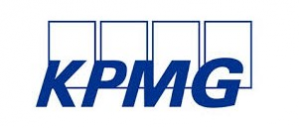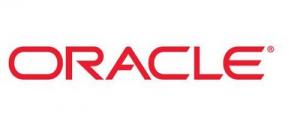The Czech Republic: Significant Immigration Changes in 2017
30.01.2017Company: Petyovský & Partners s.r.o.
The 47th amendment of the Act on Stay of Foreigners in the Czech Republic has been proposed by the Ministry of the Interior of the Czech Republic ("Ministry") and passed the first reading in the Czech Parliament.
The main aim of the amendment is to transpose the Directive 2014/66/EU of the European Parliament and of the Council of 15 May 2014 on the conditions of entry and residence of third-country nationals in the framework of an intra-corporate transfer ("ICT Directive"), however, the amendment brings significant changes in all the key areas of business immigration in the Czech Republic.
The Ministry expects the new legislation to be effective as of June 2017.
The main changes are expected in the following areas:
- Seasonal Workers;
- Employee Cards;
- ICT Workers;
- Investment Residency Permits;
- Permanent Residency of non-EU nationals;
- Submission of Residency Permit Applications on the Territory of the Czech Republic;
- Submission of Visa/Residency Permit Applications at the Czech Embassies.
Seasonal Workers
Seasonal Workers are currently supposed to apply for a non-dual Employee Card based on issued Work Permit. As the Employee Card is a type of Long-Term Residency Permit and is intended for long-term stay without limitation, the Ministry has created a separate residency title for such Employees - Long-Term Visa for Seasonal Work, as the Work Permit for Seasonal Work can be obtained for up to 6 months in a calendar year without a possibility of extension.
Holders of this kind of Long-Term Visa will not be allowed to change their residency type on the territory of the Czech Republic. Should the Seasonal Worker find a new employment (or other purpose of stay) in the Czech Republic, an application for the Employee Card/other Residency Permit Application will need to be submitted on the Embassy of the Czech Republic abroad.
Employee Cards
Under the current conditions, Statutory Representatives of Czech companies are eligible to apply for a non-dual Employee Card based on a Work Permit for Statutory Representative instead of a "Business" type of Long-Term Visa/Residency Permit.
As the Business type of residency is historically the most abused residency type in the Czech Republic, the Ministry has, over the years, applied additional scrutiny while evaluating this kind of applications. Applying for the Employee Card instead of the Business type of residency is a way how to get around the scrutiny, which the Ministry wants to avoid.
This change will not affect those Statutory Representatives who are currently holding the Employee Card or have applied for the Employee Card under the current legislation, as those will be possible to extend without limitation.
ICT Workers
The Ministry is introducing an "ICT Card" in line with the ICT Directive. The ICT Card can be issued to an employee who is employed by an employer outside the Czech Republic for at least 6 months and is being transferred to the Czech Republic as a:
- Manager;
- Specialist;
- Trainee.
The length of such assignment cannot exceed 3 years (1 year for Trainees) and the Transferee must return back to the home employer after the the end of the assignment to the Czech Republic.
Under the current system, the Assignees are supposed to apply for a non-dual Employee Card based on Work Permit for the purpose of assignment. The current provisions for assigned employees to the Czech Republic will remain valid after implementation of the ICT Card. As the current state is more beneficial for the applicants and the employers, we do not see the ICT Card to be heavily used.
The advantages of the current system are as follows:
- Processing time of 60 days instead of 90 days for the ICT Card;
- No condition for previous employment at the home employer;
- Assignment not limited to only 3 years.
Investment Residency Permits
To attract Foreign Investments, the Czech Republic is introducing an "Investment Cards" for managers of companies which are entering the Czech Republic and:
- Will open new employment positions for Czech Citizens;
- Will bring significant financial investment;
- Their investment will bring significant benefits to the Czech Republic.
The number of newly opened positions and the minimum amount of financial investment is to be decided by the Czech Government. The currently discussed thresholds are at least 20 new positions and investment in the minimum amount of CZK 10 million.
Advantage of the Investment Card will be a processing time of 30 days, however, the complexity of the application process and the number of documents to be collected for filing such application seems to discourage the potential applicants to apply for the Investment Card and rather go through the Employee Card Application process.
Permanent Residency Permits for non-EU Nationals
Non-EU Nationals are currently eligible to get a Permanent Residency Permit in the Czech Republic after 5 years of Long-Term Residency in the Czech Republic. The current legislation does not distinguish whether the applicant has to fulfil the condition at the time of submission of the application or at the time the Ministry is making the decision about granting the Permanent Residency. The current practice of the Ministry is that they are evaluating the 5-years condition at the time of making the decision.
Newly, the condition will be specified to be fulfilled at the time of submission of the application. Thus, applicants who have applied for Permanent Residency and have lost their residential status while waiting for the decision of the Ministry, should still be eligible to be granted with the Permanent Residency.
Submission of Residency Permit Applications on the Territory of the Czech Republic
According to the the Czech Immigration Law the first Visa/Residency Permit applications are supposed to be submitted on the Czech Embassy abroad by the applicant in person.
Newly, Employers which are members of an immigration program approved by the Czech Government (currently Fast-Track, Welcome Package or Project Ukraine), will be eligible to apply for Employee Cards, Blue Cards and ICT Cards on behalf of their future Employees on the territory of the Czech Republic.
This change is very welcomed and and will definitely help to avoid problems with appointments at the Czech Embassies and the complexity of the application process of the first Residency Permit.
Submission of Visa/Residency Permit Applications at the Czech Embassies
Some Embassies of the Czech Republic are experiencing high demand for submission of Long-Term Visa or Residency Permit applications and due to lack of resources cannot supply the demand.
In 2015, the Czech Republic has, in some high-demand Embassies, outsourced the agenda of the Schengen (Short-Term) Visas (for further information please see our article under the following link).
According to the Ministry of Foreign Affairs, outsourcing the agenda of Long-Term Visas or Residency Permit Applications is currently not legislatively possible and the Ministry is now amending the law to allow such change.
The Czech Visa Centres are currently operated by VFS Global and the service levels has improved significantly in terms of the number of appointments available, the processing times and overall satisfaction of the applicants.
This is again very welcomed news which should make the application process smoother.
As mentioned on the beginning, the amendment should be effective as of June 2017, however, the proposed provisions can still be changed during the legislative process.
Please do not hesitate to contact Petyovsky & Partners for further information or follow us on LinkedIn to stay current with immigration related topics.
Tags: Politics |






